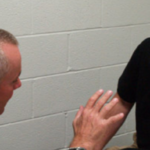Non-Forced Criminal Sexual Conduct and Penalties
You need a strong defense if you’ve been charged with the criminal offense of non-forced criminal sexual conduct!

Even Non-Forced Criminal Sexual Conduct Can Carry Harsh Penalties and Sex Offender Registration
Criminal Sexual Conduct (CSC), including non-forced allegations, carries stiff penalties and is very aggressively prosecuted. If you have been charged or are under investigation, you will need a defense firm with extensive experience defending CSC cases and a track record of achieving excellent results.
What types of actions are considered non-forced criminal sexual conduct?
This is a complex and often blurry area of criminal law, and overly aggressive police and prosecutors often charge people with sex-based crimes that could completely ruin their lives if they result in convictions. Suspects are rarely given their right to a presumption of innocence, and prosecutors assume that alleged victims are seemingly incapable of lies, falsehoods, or exaggerations.
In a nutshell, CSC laws come down to two concepts: consent and age. CSC cases involve many kinds of scenarios based on whether consent to sexual contact and/or penetration existed or not. Some alleged victims are legally deemed incapable of consent (children, mentally impaired, and physically helpless). If a sexual act were voluntary by both parties but illegal for some reason, like age, mental defect, or position of authority, this would constitute non-forced criminal sexual conduct.

Non-Force Offenses and Penalties
All criminal sexual conduct charges can occur in non-forced situations. Here are some examples of charges someone might face under these circumstances:
CSC 1st Degree (Penetration) – This is the most serious offense and carries a penalty of life in prison, SORA registration, and lifetime electronic monitoring.
CSC 1 involves the element of “penetration” of any bodily orifice (opening). Any penetration, however slight, qualifies. Penetration can be accomplished with any part of the defendant’s body or a foreign object. This crime is established when any of the following are true:
a) The victim is less than 13 years old.
b) The victim is between 13 and 16 years old, and any of the following factors exist:
i) The victim is a member of the defendant’s household,
ii) Defendant and victims are related by blood to the fourth degree of affinity,
iii) Defendant is in a position of authority over the victim,
iv) Defendant is a teacher, school employee, a licensed foster home operator or daycare employee,
v) Penetration occurs during the commission of another felony (robbery, kidnapping, home invasion, carjacking, etc),
vi) Defendant is aided or abetted by one or more other persons and has knowledge that the victim is mentally incapable, mentally incapacitated, or physically helpless,
vii) Defendant performs an invasive medical treatment or examination for purposes that are not medically recognized as ethical or acceptable.
Additional considerations – If the defendant is 17 or older and the victim is less than 13, the penalty is life in prison, and in no case less than 25 years minimum.
If the defendant is 18 or older, the victim is less than 13, and the defendant has a prior conviction for CSC where the victim was less than 13, the defendant may be sentenced to life in prison without the possibility of parole.
Lastly, if the defendant committed any felony in the same transaction with the CSC, the judge may order the sentences to be served consecutively. This means that if the defendant committed CSC 1 during the commission of a kidnapping. For example, the defendant might be ordered to serve two life sentences back to back, not simultaneously.
CSC 2nd Degree (Contact) – This charge carries a penalty of 15 years in prison, SORA registration, and lifetime electronic monitoring if the victim was less than 13 and the defendant was 17 or older.
There is no allegation of penetration, but the above factors establish CSC 2, as do CSC 1. Criminal Sexual Conduct 2 adds a provision for victims under the control of the Department of Corrections (inmates), and the defendant is an employee of the Department of Corrections.
CSC 3rd Degree (Penetration) – This charge carries a 15-year jail term and SORA registration.
CSC 3 applies to a victim who is between the ages of 13 and 16, or:
a) The victim is receiving special education services, and the defendant is a teacher, employee, or volunteer at the school district,
b) The victim is mentally incapable, mentally incapacitated, or physically helpless,
c) The victim is related to the defendant to a third-degree of affinity,
d) The victim is between 16 and 18 and a student at school, and the defendant was a teacher or an employee at such school,
e) The victim is between 16 and 26 and is a special education student, and the defendant is a teacher or employee in the victim’s school district or is a licensed foster care provider, and the penetration occurred during the foster care residency.
The law does not apply if the defendant and the victim are married or if the victim is emancipated (independent of parental control).
CSC 4th Degree (Contact) – This charge carries a potential 2-year jail term and SORA registration.
CSC 4 does not involve penetration but otherwise mirrors the factors establishing CSC 3, except for the penetration factor.
In addition to jail and extensive conditions of probation, all CSC convictions carry mandatory Sex Offender Registry (SORA) enrollment, which in and of itself is a life-wrecking and disastrous consequence.
But that’s not all. A CSC conviction can further negatively impact a defendant by having dire immigration/deportation/travel consequences, preventing a person from getting or keeping a job, obtaining housing, maintaining parental custody and/or visitation rights, and obtaining many types of licenses. The final nail in the coffin is that most CSC convictions can never be expunged.
As can be seen, these charges can be complex to sort out. A defense attorney with extensive experience with forced and non-forced criminal sexual conduct cases must get the charges dismissed or arrange the best possible resolution and a sentence that focuses more on rehabilitation than punishment and jail.

Eligibility for Expungement of a CSC 4th
Under Michigan’s expungement laws, a person convicted of Criminal Sexual Conduct Fourth Degree is eligible if all of the following are true:
- You were convicted before January 12, 2015.
- You have no other convictions.
- You have no more than two minor offenses on your record.
Defenses to CSC Cases
An astute and savvy defense expert will know how to investigate, explore, and argue many different possible defenses to any CSC charges, including non-forced criminal sexual conduct. Some of them could include:
- Untrue statements and improper motives of the alleged victim, such as extortion, personal revenge, or manipulation of family structure (getting the defendant removed from the household);
- The alleged victim wants to deflect blame for a pregnancy;
- Unconstitutional seizure of alleged evidence or statements;
- Improperly influenced statements (manipulating, leading questions) of an alleged child victim by investigating authorities;
- Exaggeration in the explanation of the sexual contact.
Even if a CSC defense attorney cannot get a case completely dismissed and thrown out of court, an influential and respected lawyer can always positively impact the outcome and potentially save a defendant from many dire consequences for years to come.

Experienced Criminal Sexual Conduct Defense Attorneys in Michigan
The CSC Defense Team at LEWIS & DICKSTEIN, P.L.L.C. has decades of experience providing the highest caliber defense to our clients, including cases of the most serious types of CSC charges, including non-forced criminal sexual conduct. We have a well-earned reputation for providing formidable and zealous defenses to charges of all types and levels of seriousness. If you face CSC charges of any level or believe you are being investigated, call us for a free consultation. We will answer your questions and explain how we can help you.
Call us today at (248) 263-6800 for a free consultation or complete an online Request for Assistance Form. We will contact you promptly and find a way to help you.













